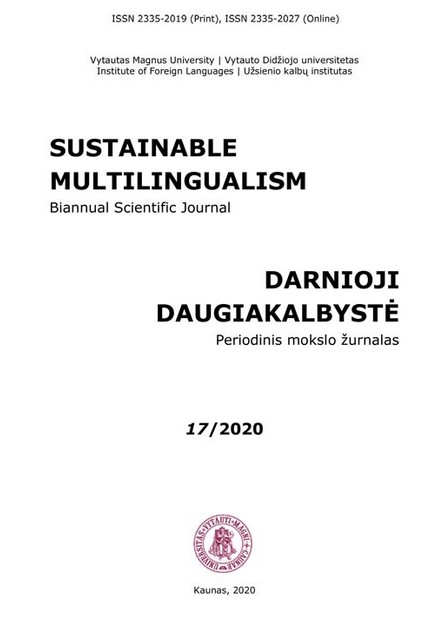MIGRANT AND NON-MIGRANT ORIGIN PRESERVICE TEACHERS’ BELIEFS ABOUT MULTILINGUALISM AND TEACHING IN MULTILINGUAL CLASSROOMS: CONVERGENCES AND DIVERGENCES
MIGRANT AND NON-MIGRANT ORIGIN PRESERVICE TEACHERS’ BELIEFS ABOUT MULTILINGUALISM AND TEACHING IN MULTILINGUAL CLASSROOMS: CONVERGENCES AND DIVERGENCES
Author(s): Júlia Llompart, Marilisa BirelloSubject(s): Education, Foreign languages learning, Language acquisition, Sociolinguistics, Ethnic Minorities Studies
Published by: Vytauto Didžiojo Universitetas
Keywords: Teachers’ beliefs; Initial teacher training; Language ideologies; Educational and linguistic trajectories; Migrant origin teachers;
Summary/Abstract: This article reports findings from an investigation into migrant and nonmigrant origin pre-service teachers’ beliefs about multilingualism and the relationship between their linguistic trajectories as students and how they perceive themselves as future teachers. We analize the beliefs of around seventy pre-service teachers taking part in a university course, collected through an individual reflection tool based on a SWOT analysis (Strengths, Weaknesses, Opportunities, Threats) and a group discussion in which students had to discuss their ideas and create a collective document. In this article we focus on the discourse of four pre-service teachers, two of whom had migration backgrounds and two of whom who did not. Findings suggest that pre-service teachers’ life and learning experiences contribute to different emotions and feeling about language and teaching in a multilingual setting. They also influence the perception the pre-service teachers have of themselves as future teachers. Pre-service teachers regard the preparation received at the university negatively and express insecurities. Findings illustrate that migrant origin pre-service teachers feel more prepared in the sense they believe that their migration experience can help to understand newcoming students and be empathic with them.
Journal: Darnioji daugiakalbystė
- Issue Year: 2020
- Issue No: 17
- Page Range: 102-123
- Page Count: 22
- Language: English

